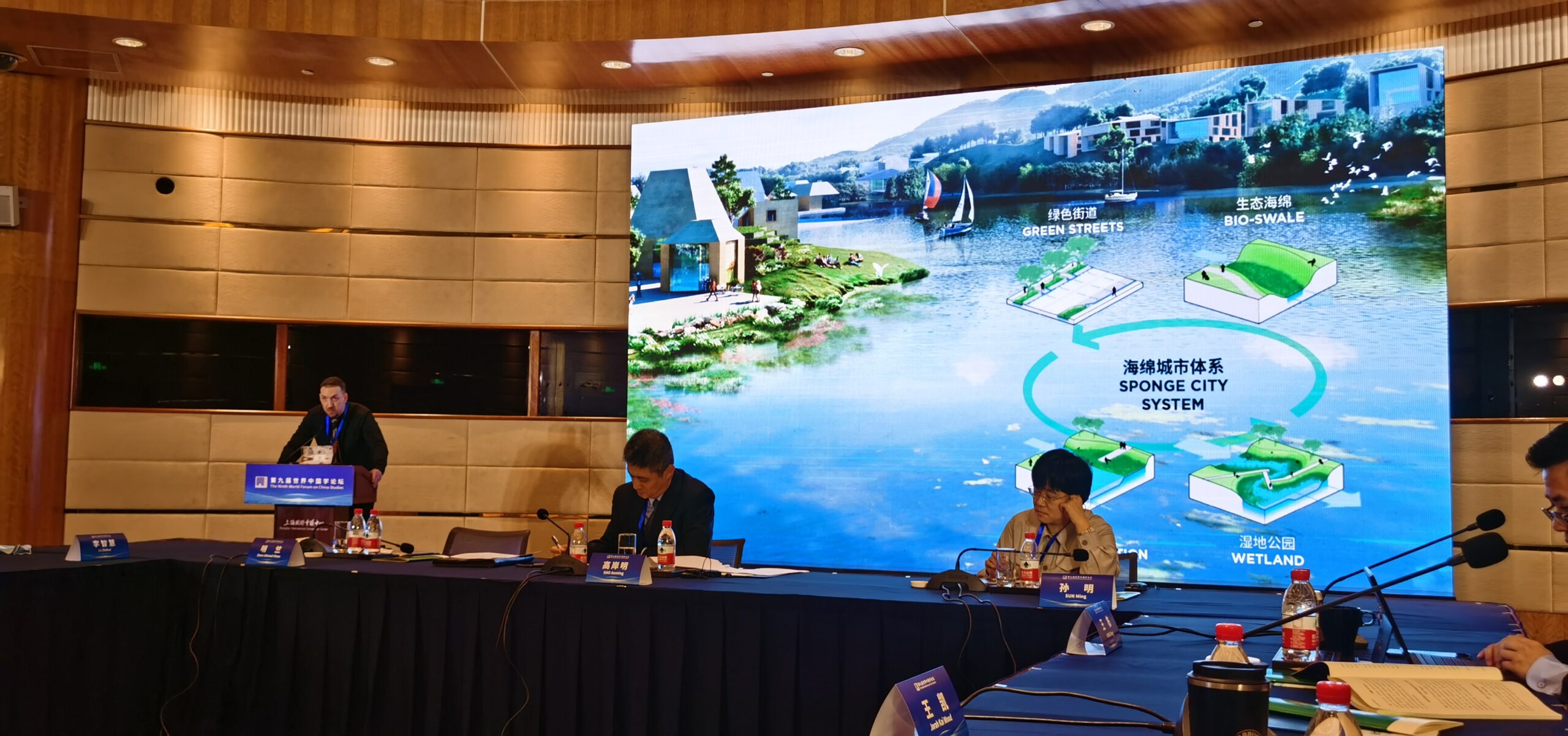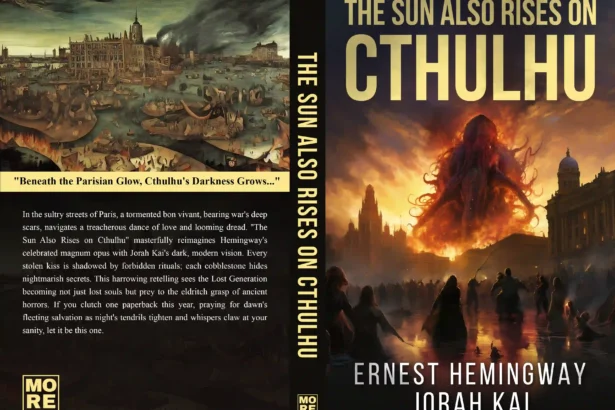In the summer I received a letter, inviting me to speak in Shanghai at a conference on China studies. It seemed very interesting, and an honor to be personally contacted and I thought about what I’d like to say at a panel about and for the youth of China, their future, and accomplishments. Unfortunately, August had a small outbreak, and Shanghai’s Pudong airport got caught up in it, 5 cases, and I decided I could not responsibly take the chance with the kids’ wedding coming up, and classes resuming. The day after, it was postponed. When I received another letter and was told it would be back in mid-October, after the National Day holiday, I was cautiously optimistic but didn’t want to take any risks again. As the date approached, both Chongqing and Shanghai were very safe, and even with a small outbreak traced to an elderly couple who broke protocols again, leaving a small trail of chaos in their travel wake, both Shanghai and Chongqing have not yet been affected. So, while we’re always on the lookout, it ended up being a really great experience.
As part of their protocols, I had to get a pre-flight COVID-19 PCR test (saliva not the brain poking one), and another when I landed. The flight itself was smooth on both sides and had an airport pick-up waiting for me. The hotel was great, breakfast was delicious every morning, and the people were all very friendly. I did a few interviews, went to some museums to see some traditional Chinese culture and history, and gained some new perspectives on China’s journey, and then the forums happened and were very interesting, and I think my speech went pretty well.

I spent a lot of it hanging out with my new buddy, Nat-Geo host Ryan Nolton, and enjoying a lot of excellent commentary about China Studies. I got to catch up with my old buddy Michael too but missed Moy. Always next time
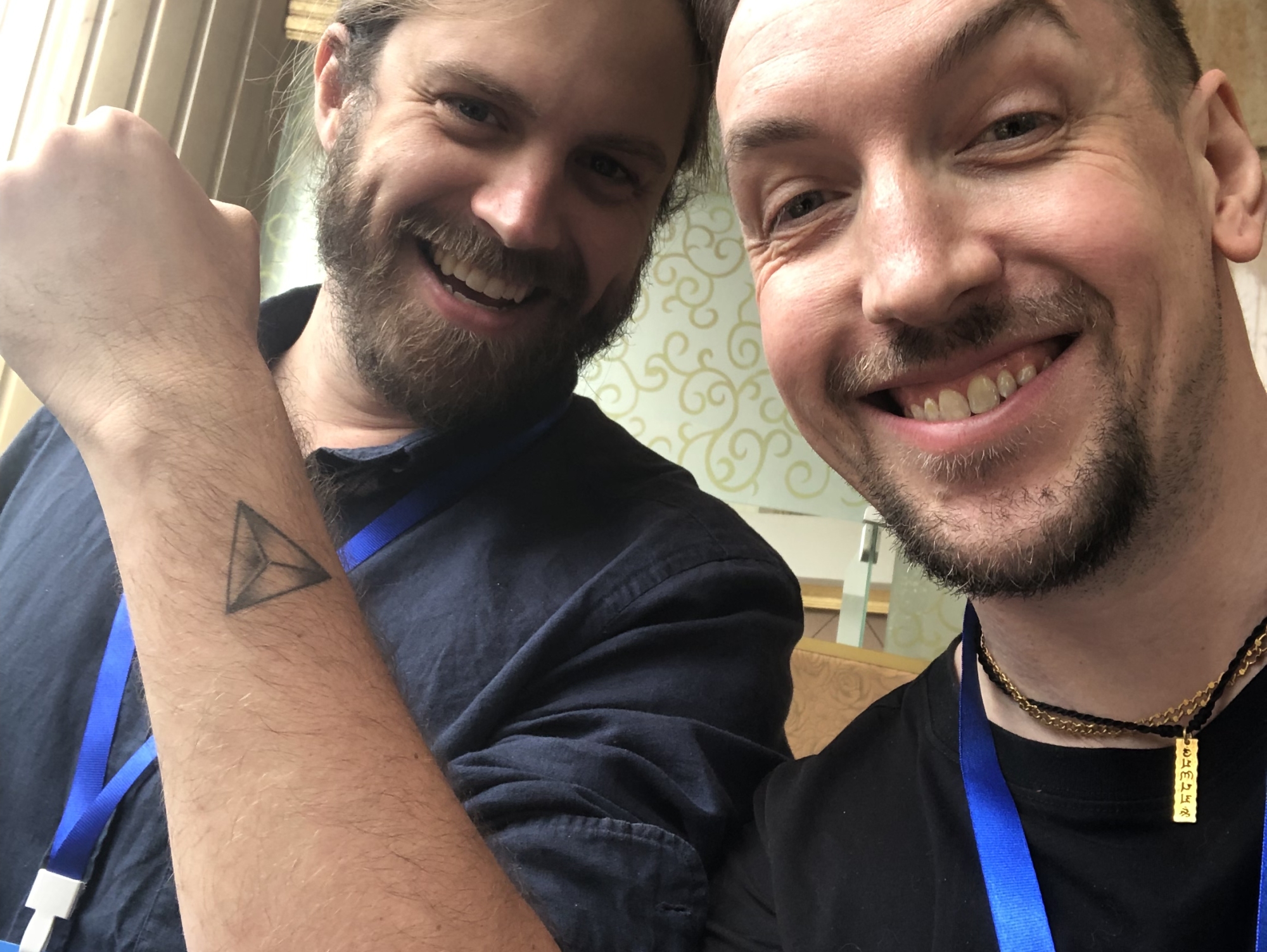
We were both speaking at Panel 5: Shared Future and Youth Contribution
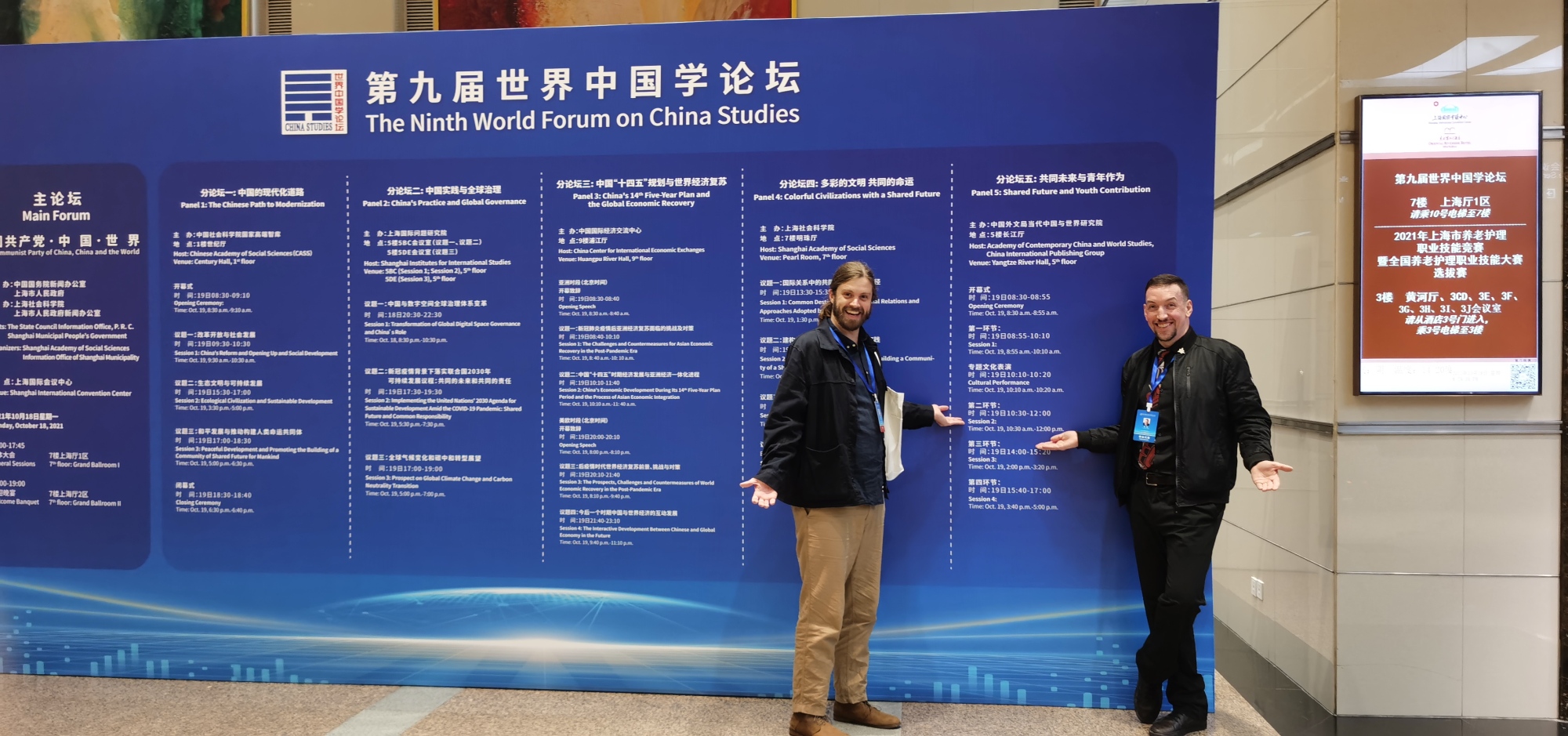
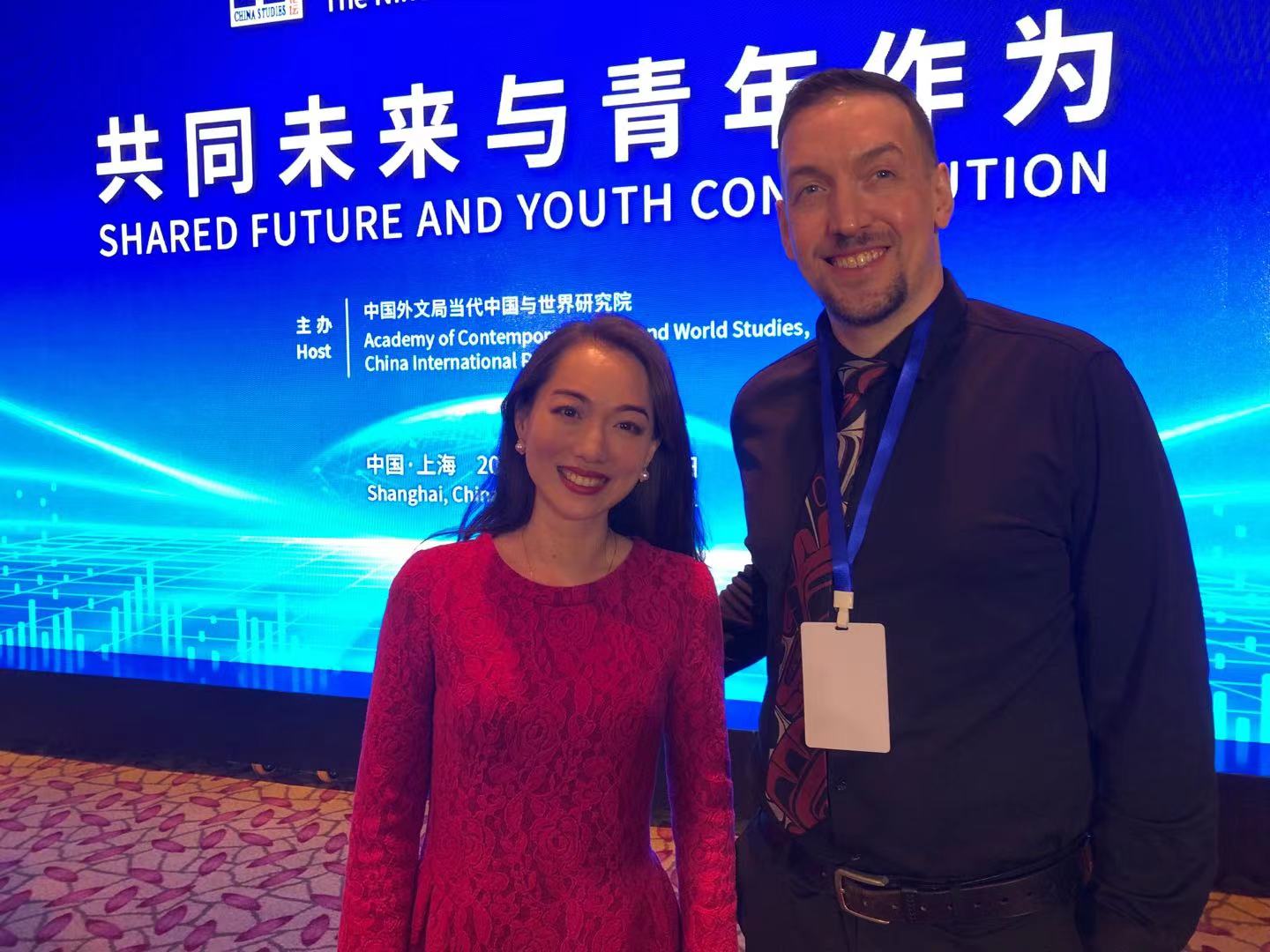
Here is my speech from the forum.
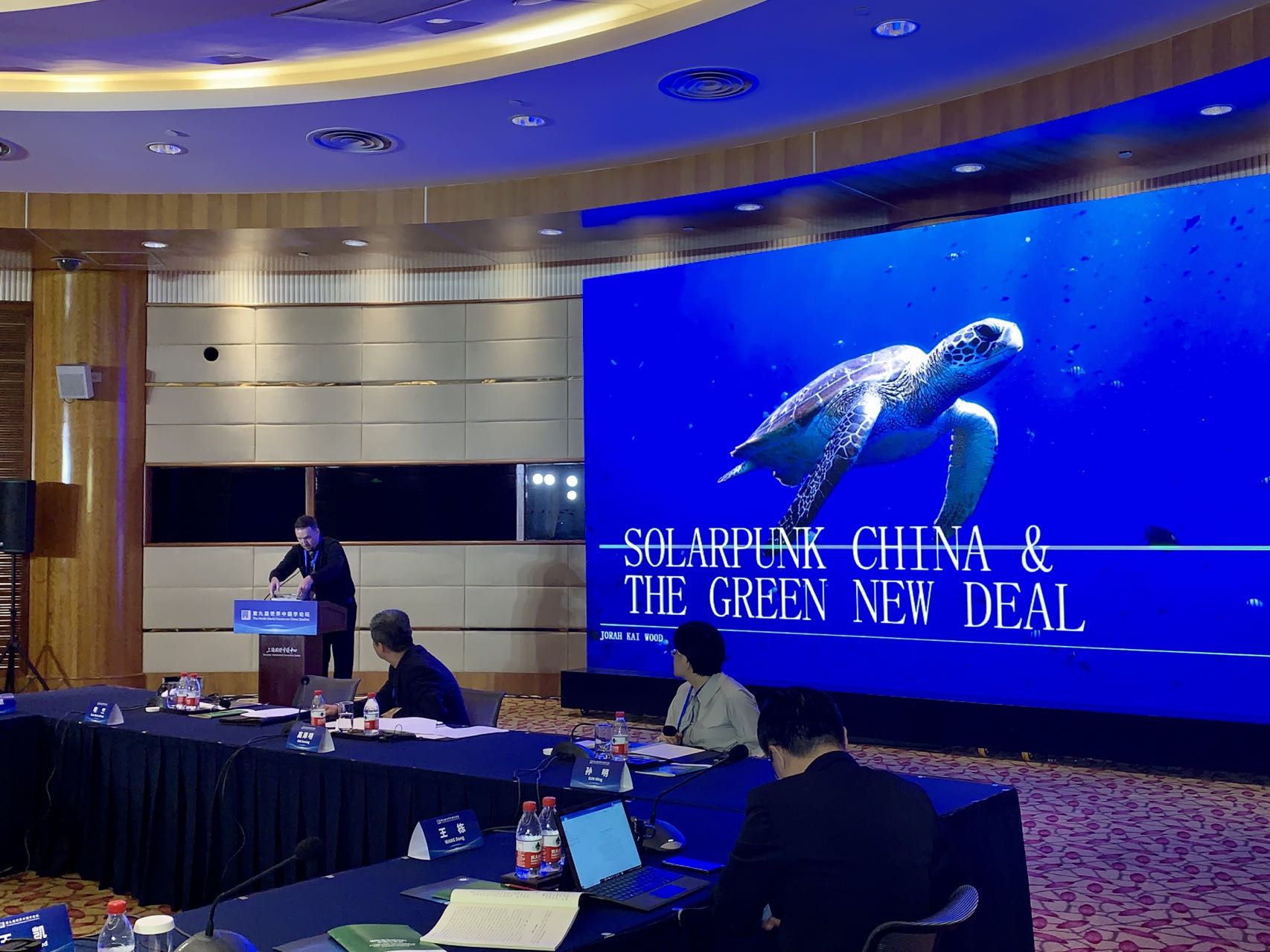
“Thanks for inviting me. I’ve still got goosebumps from the performance. It was electrifying. It’s an honor to be in Shanghai for this event and represent Chongqing Foreign Language School, Sichuan International Studies University, and iChongqing, at this inspiring international forum.
I’m so happy to have attended, and it’s been a real pleasure so far; and despite the ongoing global pandemic, I am thankful again for the incredible efforts China has made to create and maintain the world’s largest covid free bubble to make it safe to be here with you today.
I’d like to share a quote with you.
“If the heat bothers you, plant a tree
If the water bothers you, plant a tree
If you like fruits, plant a tree,
If you like birds, plant a tree,
And if you like life, plant many trees” —
I think it captures the heart and spirit of our hopes for the future, a solar pun fusion of nature and high technology that will give the youth of China a comfortable environment to prosper for their future.
What is Solar Punk, you might ask?
Solarpunk is an art movement that envisions how the future might look if humanity succeeds in solving significant contemporary challenges, emphasizing sustainability problems such as climate change and pollution.
What makes it punk? Perhaps being optimistic despite staring down the barrel of climate change and declining biodiversity is a form of hopeful rebellion to create a 2050 narrative that we can leave our kids with a better world.
I’m from Canada but have spent the last eight years in Chongqing after coming on a teaching exchange and falling in love with the spicy culture and legendary Chinese hospitality. Now I have a wife and a big, loving family and call China my home. Chongqing is known around Asia and the world as a cyberpunk city.

I loved cyberpunk growing up. Neil Stephenson’s Snow Crash and William Gibson’s Neuromancer and the Matrix films left indelible marks on my personality. But while cyberpunk culture in movies and games may be cool, the emphasis on “high tech + low life” is a dystopian place to raise a family.
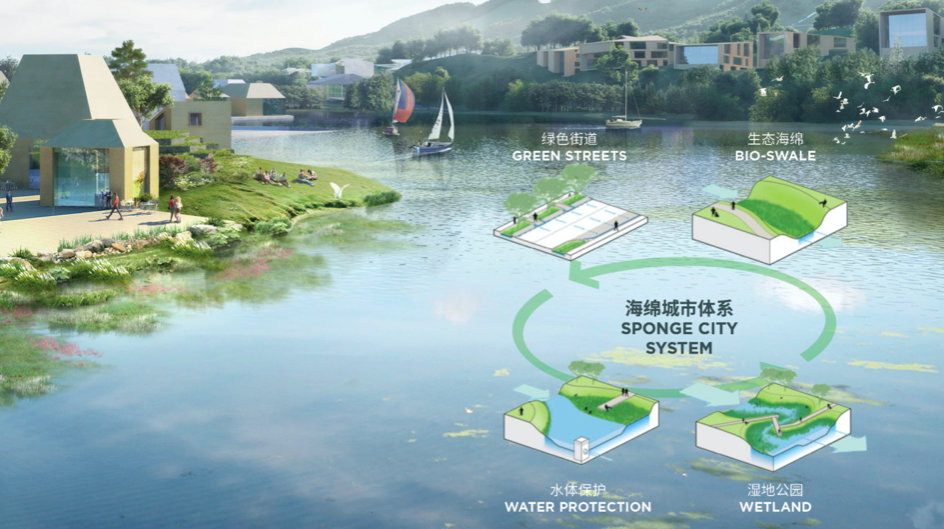
In response to rising floods, the CPC launched a 30 city sponge city program in 2015-16, with the ambitious plan is to have 80% of these cities absorbing and redirecting 70% of excess rainwater by 2030. Part of the cause of flooding in China is global warming. Part is simply the rapid development taking rural arable land that can absorb a lot of water and quickly turning it into concrete that simply does not.
Chongqing is a leading sponge city in China, with a population of over 16 million in the urban area and twice that in the rural one. A sponge marsh in the Tongnam district is over 99 hectares, an impressive network of native trees, ponds, plants, and elevated walkways, making it more than somewhere for excess water to go. People want to be there, too, soaking up their surroundings.
Chongqing was also the first sponge city to be given a smart digital control system that lets authorities monitor its sewer and drainage network in real-time. With this, they can control how the water flows into the water more precisely and then use the data to prevent future floods.
Chongqing is not just a cyberpunk super city. It’s a Solar punk city too.
When I was asked to think about the youth and accomplishments of China, I asked some of the 1000 teenagers I teach this year who all have dreams of success, happiness, meaningful careers, family, but the thread that ties them all together is they want a world to live in that is hopeful, healthy, and can provide for them and their family.
Recently I showed my students a clip about COP15 from Globalink, Xinhua Chinese news. The host imagined 2050 as a veritable utopia.
“Imagine the year is 2050, where biodiversity is not declining, but valued and preserved, maintaining ecosystem services and sustaining a healthy planet, and delivering benefits essential for all people. And this future is exactly what the convention on biological diversity in Kunming last week, with guests from 200 countries around the world, wants to promote.” This is solar punk china.
The Holocene sustained life on this planet for 12000 years from the last ice age until experts predict about 1945. The current epoch, the Anthropocene, means we have altered the earth’s natural systems so much that it is our duty to preserve and protect the planet, or we will destroy it. So we must create a solar punk revolution of our energy use and economic development that incorporates the sustainability of our biodiversity and healthy ecology for our children and theirs.
Recently, many foreign teachers in China are still adapting to recent education reforms aimed at easing the burden of child-rearing, and China has emphasized the desire for young people to have larger families, and while our education costs and affordable life indeed play an important role in larger families, our hope for a livable habitat to raise children, I believe, is the most important factor.
As a young man, a teen, I remember being incredibly disillusioned with the lipservice but lack of action Canada and western countries gave to tackling climate change. Now, 25 years later, the call is all the more urgent, but thankfully, we are finally seeing some action.
I think the COVID-19 pandemic gave a lot of people time to sit home and think, and look around, and this reflection has been incredibly valuable for reimagining how we want our world to be.
When Wuhan locked down on January 23, 2020, and I decided to stay in my house with my wife, it was My Hemingway moment. My snows of Kilimanjaro, where I worried I might never see my family in Canada again, and had nothing to show for 40 years of writing school except a head full of ideas and a couple of published short stories and poems back home. So I got up the next day, researched and wrote my pandemic diary, in case it was the last thing I wrote, and syndicated it in Canada on CTV news front page and iChongqing for the CQ daily news and for two months, I told the story of Chongqing’s incredible fight to hold back the pandemic spread, which became a book published by New World Press in Beijing in 2020 in English and Chinese. Speaking of books, when I’m not teaching, I’m hard at work on my next novel a solar punk magic fantasy for the youth of China, a Chinese Harry Potter meets Alice, about a Chongqing boy who saves the world. I have to thank the pandemic for my newfound hopefulness, for our incredible work has given me hope; as one of my favorite Stoics Marcus Aurelius said, “What stands in the way becomes the way”. The stoic principles of keeping a good attitude, facing rather than hiding from reality and being comfortable while uncomfortable I think informs a good place to face our challenges and is compatible with ancient and modern Chinese philosophy and culture.
When the pandemic began, We in Chongqing Were just 800 km from the epicenter in Wuhan and managed to contain our local outbreak at under 600 cases and only six tragic fatalities. That was an incredible effort. When the pandemic spread around the world, I linked up with bloggers from a dozen or more countries on every continent to document their daily life in the mosaic of our pandemic diaries, and it struck me that 99% of other countries did not do the basic but hard work China did to protect ourselves. many of them were resistant to even take the threat seriously as it was spreading. I was baffled and disappointed.
When I saw, a year into the pandemic, some people in western countries still fighting masks and vaccines, I felt so hopeless, until something clicked and I realized, the way the west threw up their hands and said COVID couldn’t be beat reminded me of a microcosm, a dark mirror of the way they’ve been pushing off the climate struggle all my life.
And then I realized that if China could alleviate hundreds of millions from poverty, and could do the impossible and beat covid, maybe we could save the planet too.
When China announced it would work towards achieving carbon neutrality by 2060, the world didn’t believe it. I mean, Canada and the USA constantly promise to meet goals… Kyoto Accord, the Paris Climate Accord, and consistently fail to meet them. So who could blame us?
But China means business. While the US reverses policies every 4-8 years, China is beginning the first year of the 14th five-year plan, as steady as a Choo choo train, bouncing back from a poor country to a world superpower in decades. Why is it important?
China is the worlds largest country, at 18% of the global population, but emits 28% of the world’s CO2, more than America, Europe, and Japan combined,
Our per capita number is still less than half of that of America, so it could always be worse, but it could be better.
We use 60% of our power from coal, compared to a global average of only 30%, and only get 15% of our energy from clean renewables.
But-on the other hand,
we are also the worlds’ greatest producer of solar power, nuclear power and a great creator of other green technologies such as hydro and wind power.
And extensive reforestation in China makes Earth greener. researchers found that the global green leaf area has increased by 5 percent since the early 2000s, an area equivalent to the Amazon rainforests. At least 25 percent of that gain came in China.
And it’s not limited to China,
In 2016, China organized a forum on dealing with desertification, which involved more than 100 countries along the Belt and Road Initiative routes.
This transition must transform the five sectors of energy, manufacturing, transportation, agriculture, and construction and in doing so, lead the global effort to save our biodiverstiy and our future.
We have a 2030 goal to transition from gas to electric cars in China, and many see that as ambitious compared to the west, but a recent analysis of Norway shows that the last new petrol car sold in Norway will come as early as April 2022, 3 years ahead of the government target.
So how did China beat back COVID?
- We did a hard thing (such as a “long lockdown”) today for a better tomorrow “safe country.
- We worked hard together
- We were willing to sacrifice effort and resources today to make a better future.
- Similarly, to fight climate change:
- We must do the hard thing (such as an efficient change in how we provide energy, transitioning to renewables) today for a better tomorrow “habitable planet.”
- We must work hard together
- We must be willing to sacrifice effort and resources today to make a better future.
- This hard work and forward thinking seems to be a skill set China is particularly good at and why China could be the global leader in saving the climate.
- Do you think we could do that?
Personally, I think we have to.
Maybe the answer will come from carbon capture and storage techniques or from technological breakthroughs we don’t even know yet, such as China’s groundbreaking plan to put a solar farm in space by 2025 and beam clean, free power down to earth.
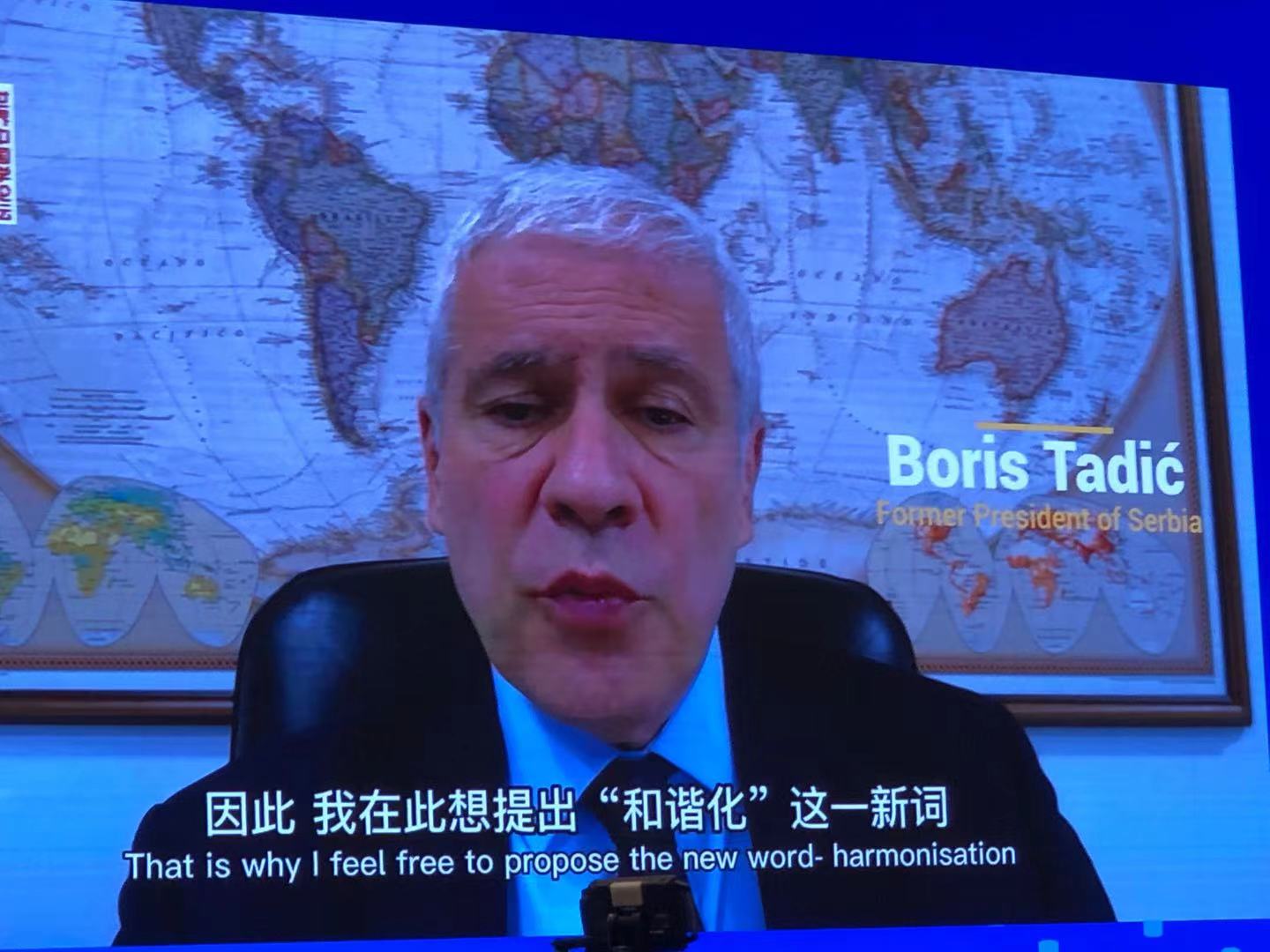
Yesterday Boris Tadic, former president of Serbia, laid out an excellent argument that was both an indictment of the wasted opportunities and mistakes of western modernization and the powerful opportunities of harmonization of social and environmental progress that China’s ascension offers.
I truly believe that China’s ascension to a role of global leadership will bring a polyphony of voices, from ASEAN, Africa, South America, and many developing nations to the table but also a hope for biodiversity.
While the CPC is striving to move mountains to transition our energy consumption and minimize our pollution output, we must all do our part to be a proud collaborator in the green transition, as we did in the covid pandemic, by cooperating and willingly making small and large sacrifices for the greater good, we will be called upon again to serve China and the world without complaint or grumble.
What we, the youth need, is the dream of a 2050 solar punk utopia because the alternative is so dark, and so hopeless that I would have a hard time getting out of bed to teach the youth for fear of what world we’re going to leave them with. Solar punk is the vision that can inspire us and our kids to work towards, so that when my students are my age in 2050, they are also proud of the clean energy transition and technology china has introduced to offset rapid development and fix the western mistakes created by modernization through a harmonization- of people, of all living things, and with our planet.
Thank you for your time, and I wish you long, happy, healthy lives and a better planet to leave your children.
Kai” – October 19, 2021, Shanghai, China
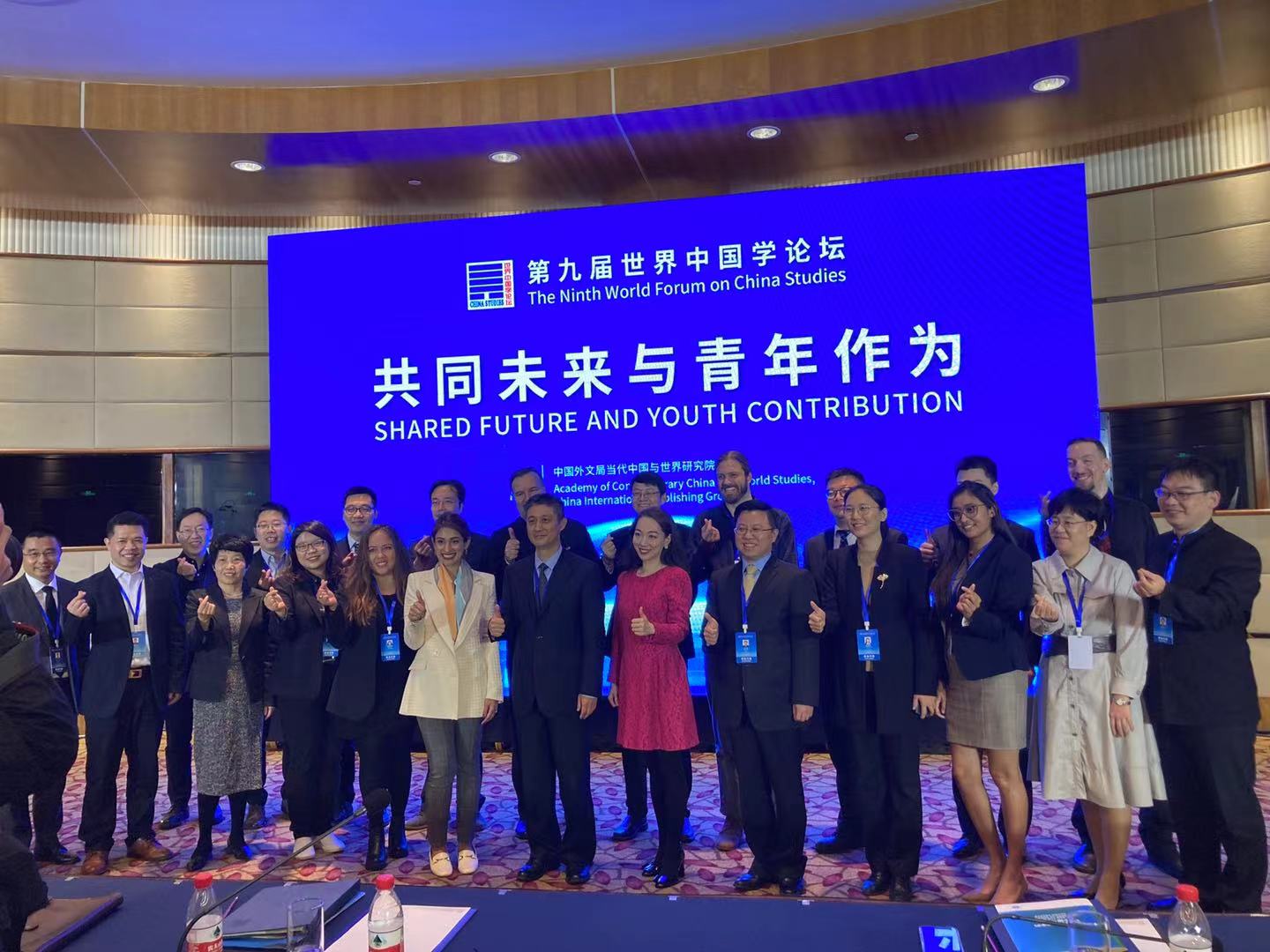
In the end, it was a very inspiring trip to Shanghai, felt very safe, with two COVID tests before I flew and when I got onsite to the beautiful Oriental Riverside hotel on the Bund, and another test to return to Chongqing. It is a testament to China’s incredible COVID prevention protocols that this conference can be so successful and fluid without hindrance and only masks and tests are needed in some situations, otherwise it is totally safe and comfortable.
Finally, my “Solarpunk China” gambit was very well received and I do believe I will put my energy into writing it as my next nonfiction book, after Amos the Amazing is published and delivered to market. The future is exciting, and I can’t wait to be part of it.
